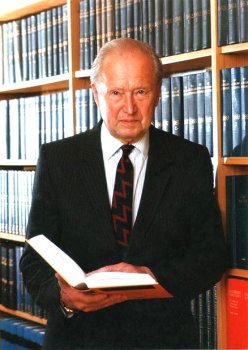 |
|
Peter Carter Ruck |
Carter-Ruck
is, according to its own boasts, among the most
aggressive firms of lawyers that can be hired by a
corporation anxious to head off hostile media coverage.
Recently, the firm has been seeking to carve out for
itself a niche in the field of corporate "reputation
management". This involves making use of the restrictive
nature of British laws on libel and breach of
confidence, and working in close concert with firms of
public relations lobbyists.
The firm does not come
cheap, with partners believed to charge more than £450
an hour for its services. Carter-Ruck has also been
prominent, however, among firms developing the
much-criticised "conditional fee agreements" as a libel
weapon. Under these no-win, no-fee rules, critics allege
that a client with no money can hold media organisations
to ransom. If it wins a court case, the firm can charge
up to double fees to the newspaper or broadcaster. But
if the media organisation successfully defends itself,
it will find it hard to recover its own legal costs.
The firm has
successfully acted for victims of media unfairness,
winning unprecedented damages for the McCann family, for
example, when tabloids printed stories falsely implying
that they were to blame for their daughter Madeleine's
disappearance in Portugal.
In the case of Trafigura,
the Carter-Ruck partner Adam Tudor has been
co-ordinating legal moves with Neil Cameron of Bell
Pottinger, the firm of lobbyists founded by Tim Bell,
once Margaret Thatcher's favourite PR man. They have
brought legal actions, complaints or threats against
foreign media organisations, including the Dutch paper
Volkskrant and the Norwegian state TV channel NRK. They
also launched a libel suit against Martyn Day, the
senior partner of the
law
firm which brought a class action for compensation on
behalf of 30,000 Africans who say they have been made
ill by Trafigura's toxic waste. Another libel case,
which is still live, was launched against the BBC after
a Newsnight programme on the toxic waste disaster in
Ivory Coast in 2006.
On its website,
Carter-Ruck promises that it can often "nip in the bud"
the prospect of adverse media coverage by going over the
heads of reporters to newspaper lawyers and making
threats. It boasts of being able to obtain injunctions
prohibiting publication of information "often in a
matter of hours". It claims wide experience of working
alongside PR agencies on behalf of blue-chip
corporations "facing sustained and hostile media
interest".


